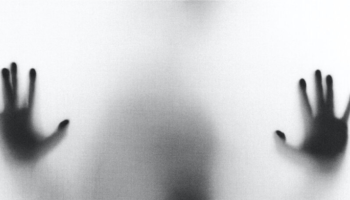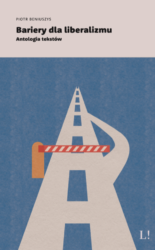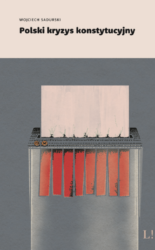It would be a challenge to recall a year in the 21st century which would be worse than 2016. Brexit, electing an unstable man for the president of the United States, catastrophic consequences of the war in Syria, escalation of tension on the South China Sea, spread of terrorism in Europe, the lack of perspectives for ending the conflict in Ukraine, the return of xenophobia and the anti-democratic changes in Poland. And on top of that, first documented attempt of foreign intervention in the democratic elections by the means of cyber-manipulation.
Having said farewell to the year 2016, I do not really know whether I should be happy or worried. Should I be glad that this disastrous year has ended? Or rather be worried that 2017 may be even worse. Why? I’ll try to explain it in a nutshell.
Brexit is not only a potential impuls for disintegration of the European Union, or merely a signal to stop further integration. It has also significant consequences for the European security.
It so happens that both the Comissioner for the Security of the Union, Julian King, and highly experienced director of Europol, Rob Wainwright, are Brits. Their exit (especially of the latter), together with the weakening of the cooperation with the British institutions responsible for fighting terrorism, organised crime and smuggling, will have a detrimental effect on the safety of Europeans.
The lack of experience of Donald Trump when it comes to international politics (or, at least, experience not related to purchasing real estate outside the U.S. or acquiring permits for construction abroad) is not a good sign. Especially after already having heard some of his chaotic and misguided statements. When faced with a situation that would recquire a quick and sensible solution, it is doubtful that the United States will behave in a rational manner.
Razing Aleppo to the ground and the war with Islamic State show how helpless can the international community be. Taking into consideration the fact that it all happens in the Middle East (which already resembles a barrel of gunpowder), it may be expected that the radical Islamists – even as a result of defensive actions – may further transfer the hot spots of conflict to various areas of Asia and Africa. Maybe even to Europe, what is already starting to happen.
The Chinese aspirations to take over the control over the rich in oil South China Sea – a sea area through which over half of the global trade has to go – is yet another reason to be worried. Intelligence informs that the Chinese – violating international laws – continue to develop military bases on artificial islands.
Their military presence may at any time bring about a military conflict with any of the neighboring countries – most likely with Vietnam or Philippines. The consequences of such a conflict could be completely unpredictable. Especially, if the intentions of Donald Trump in this regard are unclear.
The potential future stance of the U.S. with regard to the conflict in Ukraine is also worrying. If Donald Trump maintains his declaration that cooperation with Russia is more important than the borders of Ukraine, all European efforts to end the conflict in a civilised manner will be wasted once and for all. And Russia will get a signal that it may do as it pleases it its sphere of influence (whatever this may mean).
The concerns of some experts with regard to the fact that the influx of refugees and immigrants from Asia and Africa to Europe would result in a rapid increase in the number of terrorist attacks were proven false. Although there was an increase in the number of brutal attacks, these were rather isolated cases. Several groups in the process of planning new attacks were also broken up in the meantime.
What is, however, worrying is the dramatically increasing number of xenophobic and rasist attacks.
These “politically-motivated crimes” – as they are usually referred to, can be already counted in Europe in dozens of thousands. The victims are often vulnerable foreigners – several hundreds have already been injured, a few individuals were killed.
All mainstream media in Poland regularly report on the destruction of the Polish Constitutional Tribunal. We shall point out at least two of the key acts passed in 2016: an amendment to the act on the police (the so-called surveillance act) and the anti-terrorism act – which cause significant concerns related to whether they are in line with the Polish Constitution and international laws.
If the Tribunal was not able and willing to change these acts if necessary, then (in the face of the ever-growing social conflict in the country) we may start fearing whether human rights will still be respected in the near future in Poland – as far as the right to protection of privacy and confidentiality of communication are concerned.
Exaggerating the dangers related to cybersecurity, labelling them as a kind of a hybrid war, may easily provide arguments for a greater surveillance of the society. It will be fuelled by the escallation of online hate and cyberattacks. 2016 was unprecedented in this manner. For the first time a state service admitted (and declared that it is in possession of adequate documents) that the Russian intelligence is behind the stealing of sensitive information from the servers of American political parties in order to later on reveal the information and discredit a candidate which was considered unreliable from the point of view of Putin’s interests.
At the same time, the candidate was a victim of a massive online wave hate in social networks, chanelled in using fabricated information and primitive and rude accusations, which were also practically impossible to verify from the point of view of the dynamics of an election campaign. If the admins of social networks and portals where such comments were published without any prior verification make no conslusions as a result of this situation, the political stability of many countries based on liberal democracy can turn out to be in danger.
Even more, since, according to US CERT, FBI and DHS’s report, the Russian secret services have been penetrating the Internet on an unimaginable scale at least for the last couple of years.
Am I a prophet of doom? Certainly. But the experience has thought me so. Am I right? Do I base my piece on well-verified and analysed data? I’m not sure.
You can never be sure. 2016 has just ended. Let this therefore be just a brief, highly subjective commentary on the abovementioned opening question: should we be happy or worried?
The article was originally published in Polish at: https://liberte.pl/web/app/uploads/old_data/lepiej-juz-bylo/
Translated by Olga Łabendowicz
Cover photo: Edvard Munch „The Scream” || Public domain via Wikimedia Commons






















